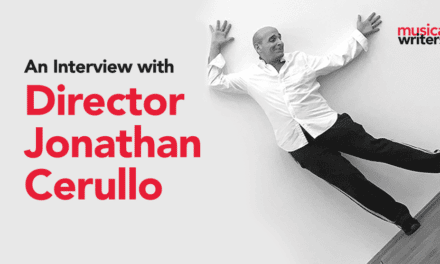A completed first draft does not a submission-ready show make! Getting constructive feedback is essential for moving your show forward.
There has to be a testing ground after each draft and/or revision.
Here are a 7 practical and achievable steps to evaluate each progressive draft of your musical, either yourself or from an outside source.
- After your first draft, create a 7 plot-points outline based on the current story. Have holes? REVISE.
- After your second draft, create a 1-page synopsis of the story. Can’t fit it on one page? You’re chasing too many rabbits. You should be able to get the main characters and their journeys into a concise synopsis.
- Feel good about your 7 plot points and synopsis? Gather some friends and do a Table Reading either live or on a Zoom-type platform. Now that we’re all getting savvy to online meetings, you can enlist friends from anywhere to read! (These don’t need to be pro actors, or even actors at all. You’re just hearing the words out loud.) Assign everyone a role and do a read-through. Don’t worry about the music yet. Just read the lyrics—you’ll still be able to see if there’s anything that outright doesn’t work. After the reading, ask for their feedback. Hear any thoughts more than twice? Listen to that. REVISE.
- After another round of rewrites applying your table-read feedback, it’s time for some expert eyes. Enlist a dramaturg or director (meaning pay them) to read the script and give you professional feedback. If you haven’t done steps 1 and 2 above, they’re probably going to tell you to do that. Then you’ll be paying for something you could have already done. Do that preliminary work ahead of time so your money is well-spent on their professional, dramaturgical, deep-dive evaluation. (Don’t have a connection to a director or dramaturg? We do! Email development@musicalwriters.com and we’ll get you set up.) Get the review, and REVISE.
- You’ll spend a good amount of time revising after the professional script review. Don’t worry if it takes weeks or even months to really answer their posed questions, concerns, and suggestions. Stay with it and answer every issue. Much like remodeling a house, everything is connected to everything, so a simple bathroom update can often lead to a full redo of the entire plumbing system. That can happen in your script/story. It’s OK!! It means you’re really digging deep, and the work will benefit. You don’t want the house flooding in a year because you didn’t know about the plumbing issue, right? Safe heartache later and fix the problems today.
- After working hard on what is now at least 4 rounds of rewrites, let’s get that show up on its feet. Hire some actors (yes, pay them) and do a full reading including the music if possible. Then get their feedback. Actors will help fine-tune your characters and their individual journeys. Their input is super important! Take it to heart, and REVISE.
- NOW you’re ready to submit that show. You’ve done the preliminary work, and it’s time for some more rigorous testing. Get it out there and see what happens!


















